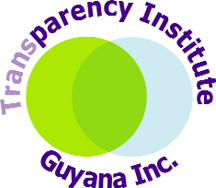It’s a Monday morning. A commuter, let’s call him Mr Driver is hustling to work from the East Bank, all around him minibuses are weaving in and out of traffic, stopping suddenly. Fellow commuters are boring the line that builds up each morning, starting from La Penitence market, past Didco even to the turn at Meadowbank. Mr Driver is late. Eventually he turns into Broad St and there in front of him is Constable Easy Going who flags him down and for no particular reason asks for his papers. They are not in order.
The negotiation begins:
Mr Officer: (perusing the papers with a frown) Sir, please proceed to Brickdam.
Mr Driver: Ow give me a break, I’m late for work.
Mr Officer: Sir, please proceed to Brickdam.
Mr Driver: You know, it’s really hot this morning. You look like you could do with a towel.
Mr Officer: Actually two towels would be better.
Driver rifles in his pocket…

Now let’s take the parent living out of town who desperately wants her little Ravi to go to one of the better primary schools in the city because the one by her house has ‘bad teachers’ and pit latrines. Ravi must do better! She knows someone who knows someone who is friends with… You know the story. It’s sorted. Little Ravi‘s future is secure. Harmless. Save for the other parent living nearby to the city school whose child should legitimately be admitted but is sent to the school round the corner.
Such numerous and daily occurrences are the thin end of the wedge of corruption. From there one can quickly progress to a multitude of more serious situations. A driver who kills a pedestrian passes some cash to police officers and the compromise begins ranging from prompt station bail (so he doesn’t have to spend a night or two in a cell) to directly compromising the investigation and prosecution of the offender. Another driver who does not pay a bribe would be denied bail, visitation, access to a lawyer in some cases, and spend the maximum 72 hours in a cell, or more, before being charged. The case jacket for an embezzlement charge suddenly goes missing.
A police officer testifying in a drugs case gets selective Alzheimer’s. A contractor kicks back to a works supervisor so the bridge he has built is deemed satisfactory. And so it spreads outwards and upwards until the tentacles of corruption strangle the safety and welfare of all citizens. Justice for the dead pedestrian’s relatives is denied, the bridge collapses, someone drowns, the drug dealers’ immunity to prosecution grow ever stronger and they drive their SUVs and invest in sizeable real estate in the city.
Corruption is the abuse of entrusted power for private gain. It hurts all who depend on the integrity of people in a position of authority. The huge and fundamental problem with corruption is that it undermines a set of mutually agreed upon laws and regulations that it is expected will be adhered to by the people.
Every citizen—from the President to the tailor, the fisherman, the broom seller, the public servant—is bound by these laws.That’s the Law. Note the capital L. Why so serious? Because the Law is the glue that binds our society. Rather, abiding by those laws is the glue.
Corruption, small and large, helps to break that glue. Criminals go free, corrupt customs officers are never charged, drug dealers move with a swagger. And the people see all this; they sense some are getting away with breaking the rules. The system is not fair, nor stable. The social contract is breaking. How can they be sure the bridges they cross are safe? How do they know the property dispute they have in court will be dealt with fairly and in a timely manner? How can they know that their children will get into the right school? On a personal level, the chaos caused by corruption brings uncertainty and anxiety about our futures, especially for parents who extend their concerns to their children’s safety and prospects. It is the main reason so many Guyanese have migrated; to escape the chaos and uncertainty of every day life.
Similarly, companies are affected, as this chaos and corruption in commerce, or in enforcing contracts, while at times advantageous to them, can be costly. The uncertainty makes business people cautious and hinders their expansion and investments. Drug dealers and money launderers can operate at lower costs and thus have an unfair advantage.
And finally back to the traffic encounter. Back to two people just trying to get by.
Mr Policeman thou art forgiven! Say three Hail Transparencies and Two No Towels! You have to try harder to resist the lure of money and uphold the pillars of law and order. You took an oath and keeping or breaking any oath is how a man is judged by his fellow man. Those are healing words. Now what a revelation it would be were some senior officers to join TIGI. Just saying.
As for Mr Driver, you too are forgiven but buddy get your papers in order! How difficult is that?
Now when many people think of TIGI – at least the small percentage of those who even know about it – they probably think it’s a small bunch of bourgeois professionals, self-righteous do gooders. Well they’re right about the small bunch part. The membership is miniscule. But so what? Being popular is overrated. Helping to build a better country can never be. In the end TIGI is about anti-corruption, and pro-accountability and transparency in government. That has to be pro-people. Seems like a worthy cause.
If you are interested in joining the miniscule membership contact trans.inst@yahoo.com





